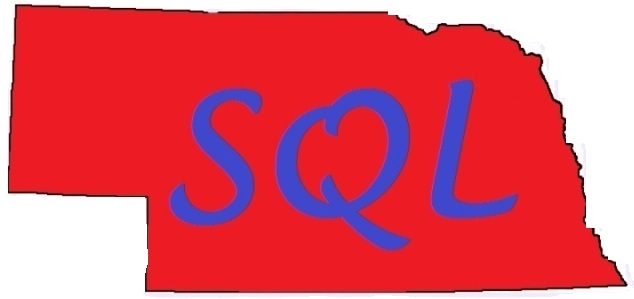Having said that, I have three speaking engagements in the near future - two SQLSaturdays and...SUMMIT!!!
 |
| https://pbs.twimg.com/profile_images/1037416795282403329/vrSIsVTR_400x400.jpg |
I will be giving slight variations on the same talk at all three events as I tweak possible changes for my Summit talk.
--
SQLSaturday #796 - Minnesota - St Paul, MN - October 6th
SQLSaturday #767 - Lincoln - Lincoln, NE - October 27th
PASS Summit v.20 - Seattle, WA - November 5th-9th
--
Minnesota and Lincoln are always amazing events, and this is only my second time speaking at Summit. I have spoken at more than a dozen SQLSaturdays and yet I get edgy thinking about being on stage at Summit (it's just a really big SQLSaturday, right? ...right?)
 |
| http://he.memegenerator.net/instance/59791161/mr-bean-you-just-keep-telling-yourself-that |
The talk I am giving is my Extended Events talk:
--
Getting Started with Extended Events
Few subjects in Microsoft SQL Server inspire the same amount of Fear, Uncertainty, and Doubt (FUD) as Extended Events. Many DBAs continue to use Profiler and SQL Trace even though they have been deprecated for years. Why is this?
Extended Events started out in SQL Server 2008 with no user interface and only a few voices in the community documenting the features as they found them. Since then, it has blossomed into a full feature of SQL Server and an amazingly low-impact replacement for Profiler and Trace.
Come learn how to get started - the basics of sessions, events, actions, targets, packages, and more. We will look at some base scenarios where Extended Events can be very useful as well as considering a few gotchas along the way. You may never go back to Profiler again!--
I have been tweaking it to add more demos and extend the length (Summit sessions are 75 minutes and most SQLSaturday sessions are 60-70 minutes.) Even if you have seen me present this session before I hope you will get something out of it.
--
Another important part of SQLSaturdays and Summit to me are the pre-conference sessions/workshops. They do cost an extra fee but it is worth it for a full day of in-depth training on a topic by a dedicated speaker (events like this don't give preconference slots to just anybody).
All three of these events have preconference sessions, and to me as primarily a systems DBA I recommend the following:
--
SQLSaturday Minnesota (Full List at https://www.eventbrite.com/e/sqlsaturday-796-minnesota-pre-cons-tickets-49272636783?aff=SQLSaturday)
Data Security for the Cloud by Ed Leighton-Dick from Kingfisher Technologies - I have known Ed for some time and he has put a lot of time into becoming a rising star in the security area.
--
SQLSaturday Lincoln (Full List at https://www.sqlsaturday.com/767/eventhome.aspx)
Level UP! Your Cloud Infrastructure Skills by David Klee of Heraflux - David is one of the top (if not the top) speaker on SQL Server on VMs and the cloud.
Data Security for the Cloud by Ed (see above) - if you don't see Ed in Minnesota you have another chance in Lincoln!
--
Summit (Full List at https://www.pass.org/summit/2018/Learn/Pre-ConferenceSessions.aspx)
SQL Server Security by Denny Cherry of Denny Cherry & Associates Consulting (DCAC) - Denny is a security (and all-around) SQL Server expert who always gives a great talk.
Modernize your SQL Server with Bob Ward, the Tiger Team, and CSS Escalation Engineers by Bob Ward and the SQL Tiger Team from Microsoft - nobody can melt your brain like Bob Ward. Any time you can see Bob speak, you should...period.
Fixing Query Performance Problems from Estimates, Statistics, Heuristics, and Cardinality by Kimberly L. Tripp of SQLskills.com - Kimberly knows more about statistics and the related topics than anyone I know, and she shares it so well.
Kimberly and Bob are in the same time slot (all-day Tuesday) and in this case I am going to see Bob but I have already had weeks of training from Kimberly and if her topic sounds more interesting to you it will be worth it!
--
Hope to see you at these events and in the preconference sessions!
 |
| https://memegenerator.net/img/instances/68890668/see-you-soon.jpg |





